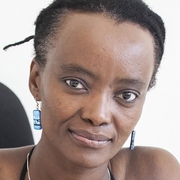
RECENT revelations about the extent of US government spying have put secrecy and privacy at the centre of that country’s national debate. South Africa should be having a similar conversation. Only the credulous would believe this government isn’t spying on many of its citizens. After all, sections of the state have turned spying on government officials into an art form.
An equal measure of gullibility would be required to believe that the rules covering such snooping are safeguarding our rights. It would be interesting to test state practice against section 14 of the bill of rights, which establishes the right to privacy — including the "right not to have… the privacy of … communications infringed". But it must be tested in public, not in some secret court.
Some of this information has become available. The National Communications Centre has "the capacity to see your text messages, hear your cellphone conversations, pinpoint your location through your cellphone, access your personal cellular and land-line telephone records and read your e-mails", said a Mail & Guardian report in October 2011.
In a sense, the information released by erstwhile spying contractor Edward Snowden confirms what we’ve always known: all governments spy on each other and their citizens. What makes the revelations more interesting is the extent to which the US government, through the National Security Agency (NSA), can poke its nose into everything that billions of people write or say in electronic form.
But there is little new under the sun. The June 24 issue of the New Yorker contains an article titled "The Prism" by Jill Lepore, which is about the history of government spying. It begins: "An extraordinary fuss about eavesdropping started in the spring of 1844, when Giuseppe Mazzini, an Italian exile in London, became convinced that the British government was opening his mail."
Mazzini, a political activist for a united Italy, was arrested, exiled and condemned to death in absentia. But how did Mazzini find out? He put poppy seeds, hair and sand into envelopes, sealed them with wax, and mailed them to himself. The letters arrived with none of these inside. Mazzini contacted his friend, British MP Thomas Duncombe, to find out if then home secretary James Graham had ordered Mazzini’s mail to be opened. "Graham said the answer to the question was a secret," Lepore writes. Does this sound familiar? Did someone say Nkandla?
In response to the subsequent public uproar, an investigation found that "Mazzini’s mail had indeed been opened and that there existed something called the Secret Department of the Post Office. Warrants had been issued for reading the mail of the king’s subjects for centuries."
Lepore points out that, "for all that has changed in the past few centuries, much that happens in government remains cloaked in mystery, if only because cloaking a secret in mystery is a very good way to hide the exercise of power".
It is also useful to understand that the private firms that handle communications have a record of collaborating with governments in this area. In the August 15 issue of the New York Review of Books, James Bamford describes how the US government gained secret and illegal access to Americans’ private communications, beginning in 1920, with the birth of an NSA predecessor, the Black Chamber. "With the shake of a hand, (chamber boss Herbert Yardley) convinced Newcomb Carlton, the president of Western Union, to grant the chamber secret daily access to the private messages passing over his wires."
When all the hue and cry dies down, we may well discover that Google, Yahoo and Facebook have collaborated with the NSA more than they are now willing to admit.
The right to privacy is enshrined in our constitution. As citizens, we should not allow any government to infringe on that right. And to the inevitable objections of those who prefer to keep the exercise of power in the shadows on the grounds of "security", we can point out that if patriotism is the last refuge of the scoundrel, then national security is patriotism on Twitter.
BY PALESA MORUDU , 05 NOVEMBER 2013, 05:54
• Morudu writes from Cape Town. She is a Rhodes University graduate
